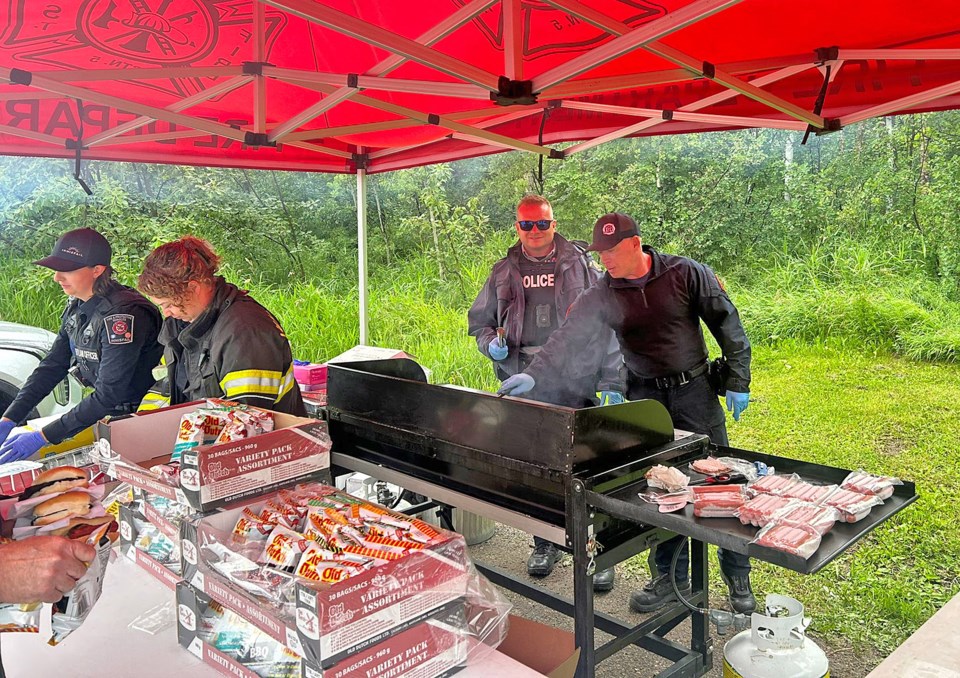INNISFAIL – The Innisfail RCMP detachment is seeing a dramatic decrease with the Crime Severity Index (CSI) in its rural area of authority and a slight increase in Innisfail.
But overall, Staff Sgt. Ian Ihme, the detachment's commander, is cautiously pleased with the annual CSI result for the local RCMP, which comes from a recently released Statistics Canada report on police-reported national crime statistics for 2024.
“For the most part it looks pretty good. For Innisfail, our CSI increased a little bit, which I expected,” said Ihme, whose 18-member detachment is split into provincial and municipal sides of operations for funding and statistical reporting.
On the municipal side is Innisfail, while the provincial side covers a large section of Red Deer County that stretches north to near Highway 42, all the way south to Highway 587 in Bowden, west to Range Road 50 and east to Range Road 241, 10 kilometres east of Pine Lake.
The provincial side of Innisfail RCMP’s jurisdiction includes Penhold and the hamlets of Markerville, Spruce View and Dickson.
The police-reported Crime Severity Index (CSI), which was developed in 2009, is a summary measure of the volume and severity of police-reported crime in a town, city, province, territory, or the country.
The CSI measures the overall seriousness of crime from one year to the next by tracking both the prevalence of crime within a community, and the seriousness of the crimes committed.
The 2024 Statistics Canada CSI report, which was released by Alberta RCMP on July 31, shows there was a 6.9 per cent decrease in the CSI across Alberta RCMP jurisdictions compared to 2023.
The crime scores in 147 different Alberta RCMP jurisdictions that are measured for the CSI is the second lowest it has been since 2015.
Of the 147 jurisdictions policed by the RCMP 95 had a decrease in the CSI from 2023 to 2024.
Ihme noted the report shows the Innisfail detachment’s municipal 2024 CSI value at 88.9, an increase of 5.2 per cent when compared to the newly revised 2023 CSI value of 84.5, and all-time low for the town.
The Statistics Canada report shows the overall CSI in Alberta for 2024 was 95.6, a nine per cent decrease when compared to 2023.
“In the last couple of town halls, I kept saying 2024 was way busier than in previous years I've been here. It was just noticeably busy, especially in the summertime our guys were going to more calls, a few more serious things,” said Ihme. “My hope at the time was that it was just a little bit of a blip, and I think it has been because this year has not been as busy as last year, as far as number of calls and the severity of calls.
“Everybody wants to see it going down. We went up a little bit. In the end am I all that concerned about it? I’m not,” he added. “Looking at the way this year is going I expect next year, unless something significant happens, to see a continued drop off.”
However, on the detachment’s provincial side there was a dramatic decrease of 16.5 per cent, from a 2023 CSI value of 86.9 to 72.6 in 2024.
“It’s definitely good. That's where we definitely want to see it,” said Ihme, adding he continues to accept crime statistics with a bit of caution. “What do they actually mean?”
He noted there is a point system for crimes, such as break and enters, and they are determined based on the average jail sentence.
With the more serious crimes, such as homicide, the greater number of points, Ihme explained.
“Our stats for next year could be super skewed, right? It could show all of a sudden that the crime severity is so much higher,” said Ihme. “But in reality does it actually change for the normal citizen? No, it doesn't.”
But for now, Ihme will accept the rural CSI score with cautious optimism as it’s a far cry from the concern hundreds of Red Deer County residents showed on Jan. 28, 2020 when they packed the auditorium in the Royal Canadian Legion Branch #104 in Innisfail over the rising amount of crime being committed in their region.
“Oh yes, without question,” said Ihme. “I definitely have to be careful because if you talk to people in the rural communities they're still going to tell you that that crime is still a problem.
“But has it gotten better? I believe it has, for the most part.”



